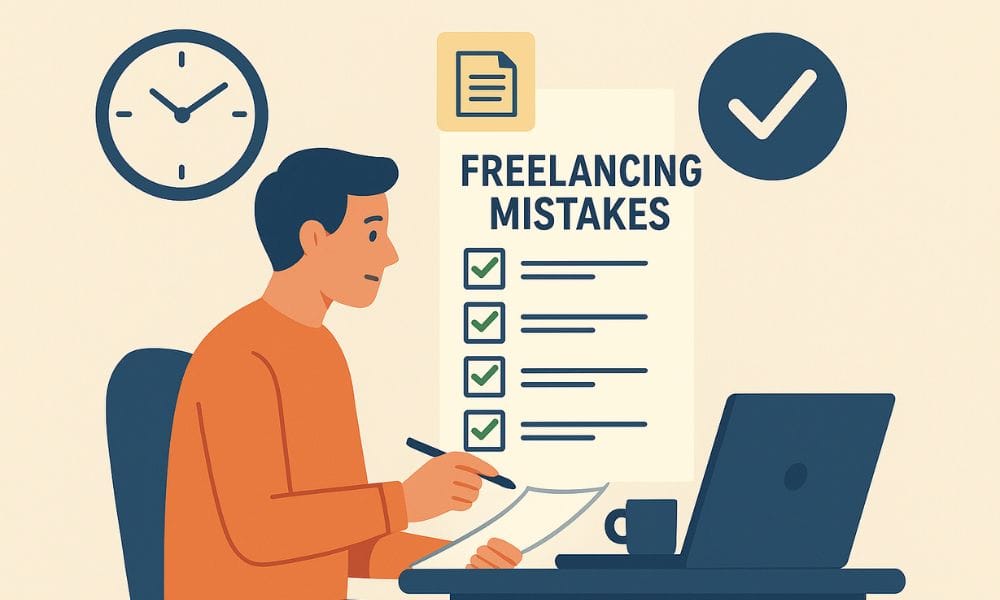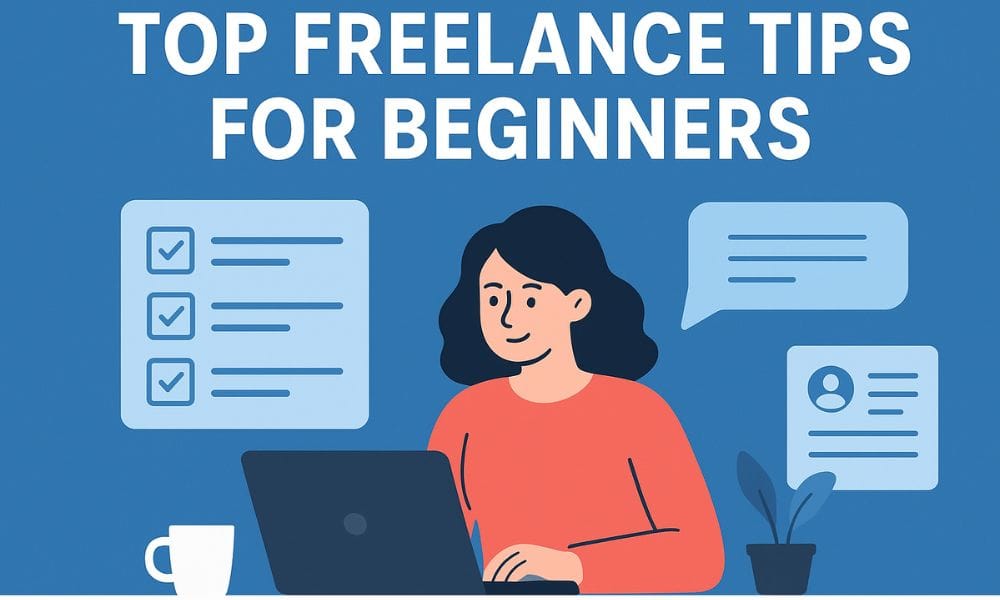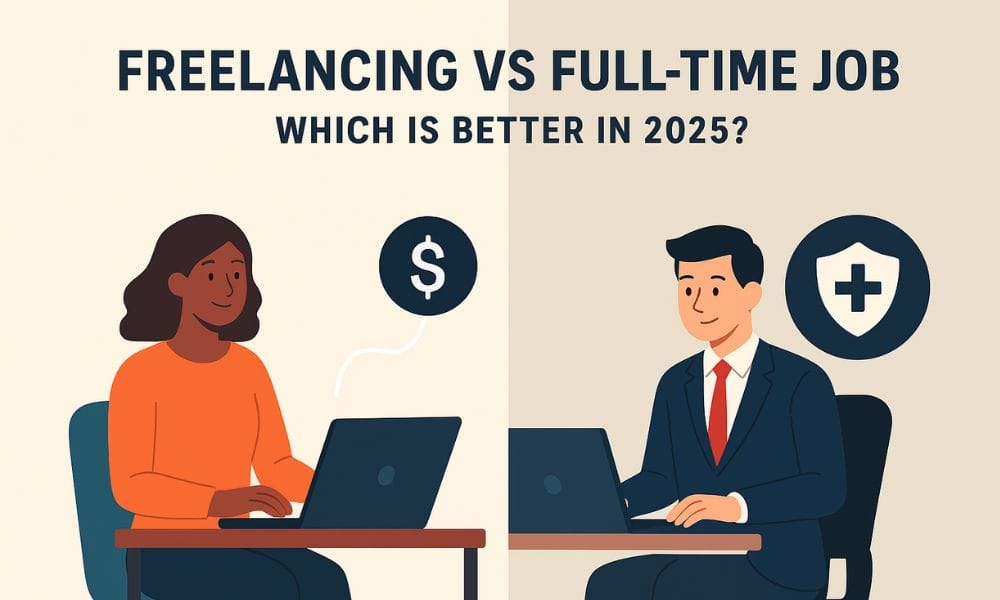The world of work is evolving quickly. Many people no longer want to rely only on traditional 9-to-5 jobs. Instead, they search for flexible ways to earn while maintaining independence. That’s where the question arises: what is freelancing, and why is it becoming such a popular career choice?
In this guide, we’ll explain exactly what is freelancing, explore its pros and cons, and share beginner-friendly tips on how to start a successful freelance career. By the end, you’ll know whether freelancing is the right path for you.
So, what is freelancing in the simplest sense? It’s working for yourself instead of being tied to a single employer. A freelancer is someone who uses their skills—like writing, graphic design, programming, or even marketing—to complete tasks or projects for different clients.
Think of freelancing as being your own boss. Instead of getting a fixed salary every month, you earn money from the projects you choose to take on. You decide:
- Who you want to work with
- What type of work you accept
- When and where you want to do it
For example, a freelance writer might create blog posts for three different companies in the same week. A freelance designer might build a logo for a startup today and design a website for a local business tomorrow.
The beauty of freelancing is flexibility—it gives you control over your work and lifestyle. That’s why more and more people are searching for what is freelancing and how it can give them freedom that regular jobs don’t offer.
👉 Related: How to start freelancing with no experience
Why is Freelancing So Popular?
The demand for freelancers is growing because businesses and individuals now prioritize flexibility. But to really understand what is freelancing, it helps to see why so many professionals are shifting toward it:
- Remote opportunities – Clients can now hire talent worldwide, giving freelancers access to a global market.
- Cost-saving for companies – Employers only pay for specific projects instead of keeping full-time staff.
- Multiple income streams – Freelancers can work with different clients at once, which diversifies earnings.
As Forbes explains, freelancing is no longer just a side hustle—it is becoming the future of work.
Pros of Freelancing ✅
If you’re wondering what is freelancing good for, here are some of the biggest advantages:
1. Flexible Schedule
You decide when to work. Whether you’re an early riser or night owl, freelancing adapts to your rhythm.
2. Freedom to Choose Projects
You control which projects to accept, which clients to work with, and which industries to explore.
3. Work From Anywhere
With just a laptop and internet connection, you can freelance from home, a café, or even while traveling.
4. Higher Income Potential
With the right freelancing skill, you can charge competitive rates and sometimes earn more than a regular job.
5. Skill Growth
Freelancers work on diverse projects, which helps them sharpen old skills and learn new ones faster.
6. Independence
If you dislike office politics or micromanagement, freelancing gives you complete autonomy.
Cons of Freelancing ❌
While exploring what is freelancing, it’s important to recognize that this career path also has challenges.
1. Unstable Income
Unlike fixed monthly salaries, freelance income may go up or down depending on how many projects you land.
2. No Employee Benefits
Freelancers don’t get paid leave, health insurance, or retirement plans unless they manage these themselves.
3. Finding Clients
One of the hardest parts of what is freelancing involves client acquisition. Beginners often need time to build credibility.
4. Payment Issues
Some clients delay payments, which makes cash flow difficult. Contracts and secure platforms help reduce risks.
5. Work-Life Balance Problems
Being your own boss can lead to working longer hours than expected. Setting boundaries is essential.
6. Isolation
Freelancers often work alone, which can feel isolating without regular social interaction.
Is Freelancing Right for You?
If you’re asking yourself what is freelancing and is it right for me, the answer depends on your goals and personality.
Freelancing may be a good fit if:
- You enjoy independence and flexible schedules.
- You are comfortable working with multiple clients.
- You’re willing to handle inconsistent income.
On the other hand, if you value security, fixed hours, and guaranteed paychecks, freelancing might not suit your lifestyle.
Tips to Start a Freelance Career
If you’ve decided that what is freelancing is the path you want, here’s how to get started:
- Pick your niche – Identify what services you want to offer.
- Create a portfolio – Show examples of your work to attract clients.
- Use freelance platforms – Sites like Upwork help you connect with clients worldwide.
- Start with smaller projects – Gain experience and build reviews before increasing your rates.
- Focus on communication – Clear and professional client interaction leads to repeat business.
- Grow gradually – As your skills and reputation improve, scale your freelance career.
👉 Related: How to start freelancing with no experience – a step-by-step guide for beginners to land their first client.
Conclusion
To wrap up, what is freelancing? It’s a modern way of working where you control your clients, time, and income. Freelancing offers flexibility, independence, and the potential to earn well, but it also has downsides like inconsistent pay and lack of benefits.
If you’re motivated, skilled, and ready to embrace independence, freelancing can be both rewarding and sustainable. Just remember that success requires patience, consistency, and the right strategy.
FAQs
1. What is freelancing and how is it different from a regular job?
Freelancing means working independently for multiple clients instead of being tied to one employer. Unlike a job, you decide your schedule and rates.
2. How much can a freelancer earn?
Earnings vary based on your skills, niche, and experience. Some freelancers earn part-time income, while others run six-figure businesses.
3. Which skills are best for freelancing?
Popular skills include writing, design, development, video editing, and digital marketing.
4. Can freelancing be a full-time career?
Yes. Many freelancers eventually make freelancing their primary career and even build agencies.
5. How can I avoid scams in freelancing?
Work through trusted platforms, sign contracts, and avoid clients who request free work upfront.



